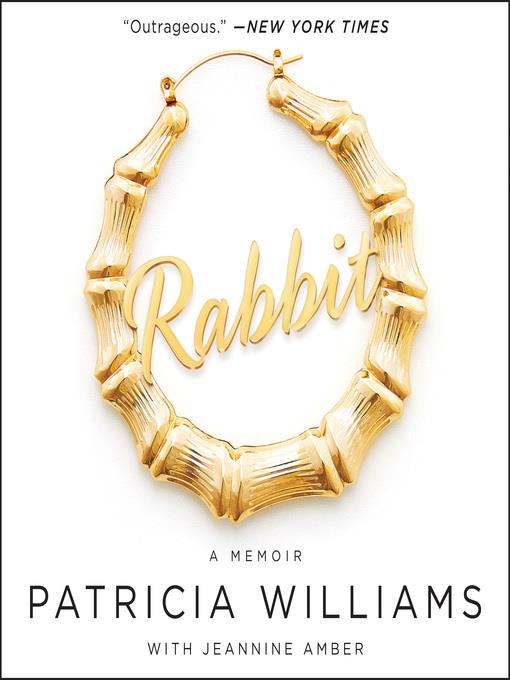
Rabbit
The Autobiography of Ms. Pat
کتاب های مرتبط
- اطلاعات
- نقد و بررسی
- دیدگاه کاربران
نقد و بررسی

July 17, 2017
In this provocative memoir, popular comedian and podcast celebrity Williams describes coming of age amid poverty, neglect, and racism in 1980s Atlanta. Nicknamed “Rabbit” by her alcoholic mother, she learned to steal at age seven while living in the house of her grandfather, who sold moonshine to his “good-time regulars.” Although Williams’s mother put her five children in constant jeopardy with her boyfriends, one of them sexually assaulted 12-year-old Rabbit and her sister and gave them five dollars and a few pieces of fried chicken to not tell anyone. By 15, Rabbit was a mother of two, seduced by a slick older married man in the drug trade; at 16, she peddled crack to support her babies, got shot by a gang member, and was later sentenced to a year in jail for selling crack. Important revelations about her life goals came during her time in Fulton County Jail, and she eventually finished her educational requirements to become a medical assistant upon her 1991 release. Williams displays self-deprecating humor in her book’s dramatic moments, and she bares her soul throughout this inspiring, page-turning narrative.

June 15, 2017
An African-American female comedian recounts how she escaped poverty and a life of crime to become a respected performer.One of five children born to a single mother, Williams spent the first years of her life growing up in her grandfather's illegal liquor house in Decatur, Georgia. Petty crime was a way of life: when she was 8, her mother, who did "anything for a little extra cash...except get a regular job," taught Williams to pickpocket the drunks who visited the liquor house. Her grandfather's arrest for attempted murder forced her and her family to move out. Surviving on her mother's meager welfare checks, Williams and her siblings routinely scammed churches for free food. Her mother then took up with a man who kept the family fed but sexually abused both Williams and her older sister. At age 12, Williams became the girlfriend of a married 20-year-old man, Derrick. She gave birth to the first of two children she would have with him and dropped out of school a year later. Derrick supported them with odd jobs and later with money he made as a drug dealer. When he went to jail, Williams started selling drugs; soon she had a thriving business. She made enough money to support herself, her children, and relatives who joined her small family to escape homes that resembled "the seven circles of hell." Williams continued dealing even after she met and married a man who "didn't know shit about case workers, eviction notices or eating ketchup sandwiches for dinner." At 23, she earned her GED and sought job training. When she discovered that her criminal record made it impossible to secure respectable employment, a caseworker casually remarked that Williams had a gift for making the tragic seem hilarious. Both savagely honest and often genuinely funny, this is the story of how a resilient woman survived a harrowing early life and found unexpected salvation through humor. Sassy, inspiring, and uplifting.
COPYRIGHT(2017) Kirkus Reviews, ALL RIGHTS RESERVED.

August 1, 2017
As one of her hopelessly alcoholic mother's five children, growing up in inner-city Atlanta in the 1980s, comedian Williams experienced hunger, violence, and sexual abuse from a young age. At 15, she was selling crack to support herself and her two kids. Years later, her decision to find legal employment leads to the rock-bottom realization that, even after putting in the hard work for her GED and a medical-assistantship degree, it was all too likely that she was never going to get hired with a criminal record like hers. As she joked her way through this painful moment, her supportive caseworker suggested comedy was Williams' true calling. It's this woman and other angels who offered protective wings, strong shoulders, or firm boosts whom the author credits with helping her turn her life around. Williams isn't seeking sympathy, nor to be the poster child for growing up in the hood. As she notes, though, Girls who grew up like me are invisible; now, her story, written with journalist Amber, is powerfully visible, and a generous service to readers.(Reprinted with permission of Booklist, copyright 2017, American Library Association.)

























دیدگاه کاربران